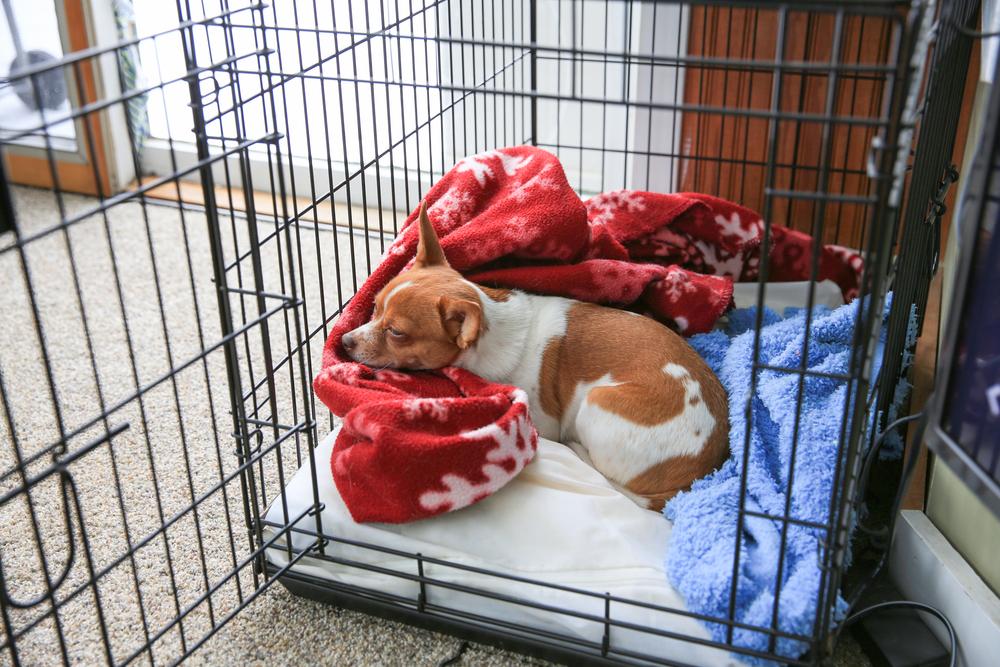Dogs can have a number of different behavioral problems, everything from aggression to separation anxiety. Just like humans, canines often suffer from everyday stress that can lead to issues that can cause them to act out irrationally, again similar to their masters.
While people have some means at their disposal to deal with stress, dogs aren’t so lucky. In this light, here are our top ten ways to help reduce and relieve canine stress.
#1 - Easily the number one way to reduce a dog’s stress is through regular, daily exercise. Walking, playing, trips to the dog park, swimming any form of physical activity will not only reduce your dog’s daily stress level, it also helps them to live a much longer and healthier life.
#2 - Providing mental stimulation is just as effective as physical exercise and the two can also be combined. Think about different types of toys available that entice a dog to work for a treat or reward.

#3 - Crate training is a great practice, especially when it comes to safely transporting your pet, but it also provides them a safe haven. Just like a den for wolves in the wild, this dog-friendly space makes them feel comfortable in their own space at home.
#4 - Dogya (participating in yoga with dogs) has exploded in popularity recently. When humans invite their canines to join in with this ancient practice, calming poses combined with gentle massage and stretching techniques does wonders for masters and their four-legged friends.
#5 - Security blankets, specialized treats and personal toys also provide comfort for stressed-out pets. Try to use items that already contain our scent, perhaps a towel or blanket, which will make canines feel even more secure.
#6 - Calming background noise like classical music has been used to “calm the savage beast” and can work the same for many dogs. While we’re away from home, these relaxing tones can provide comfort during our absence. Some pet owners simply leave the television set on for some companionship while we’re busy and work, school or while running errands.
#7 - Attitude is everything and if your dog becomes stressed or anxious, remain calm. Dogs pick up on our emotions and if we become upset along with them, they’ll simply continue the behavior. Also, avoid the temptation of giving them food or treats in an attempt to soothe them. They’ll quickly associate the behavior of being “freaked out” with a reward of some kind.

#8 - In some cases, you may be able to desensitize your dog to the trigger of their stress. For example, your dog may react negatively to other canines so you could begin by introducing them to smaller, less intimidating animals, especially less-threatening females, in a closed and controlled setting.
#9 - Wrapping your dog in a blanket on your lap and spending more quality, down time with them will also provide positive results. Just knowing you’re there with them is tremendously comforting and can reduce stress overall.
#10 - Avoid using sedatives since there are safer, more natural alternatives available that can be used in extreme situations for dogs who suffer from panic attacks during fireworks, thunderstorms, moving and other stressful events. Along with possible side effects, the likelihood of addiction will make them less effective over time. The disorientation these medications cause may lead to potential injury, health problems, sudden death or in some cases could make an animal even more stressed when they feel a lack of control or a sense of confusion.
It’s better to bond with our pets instead of resorting to drastic measures like using drugs. Deploying some of these simple, yet effective tips and techniques can make a huge difference for you and your beloved best friend.


















